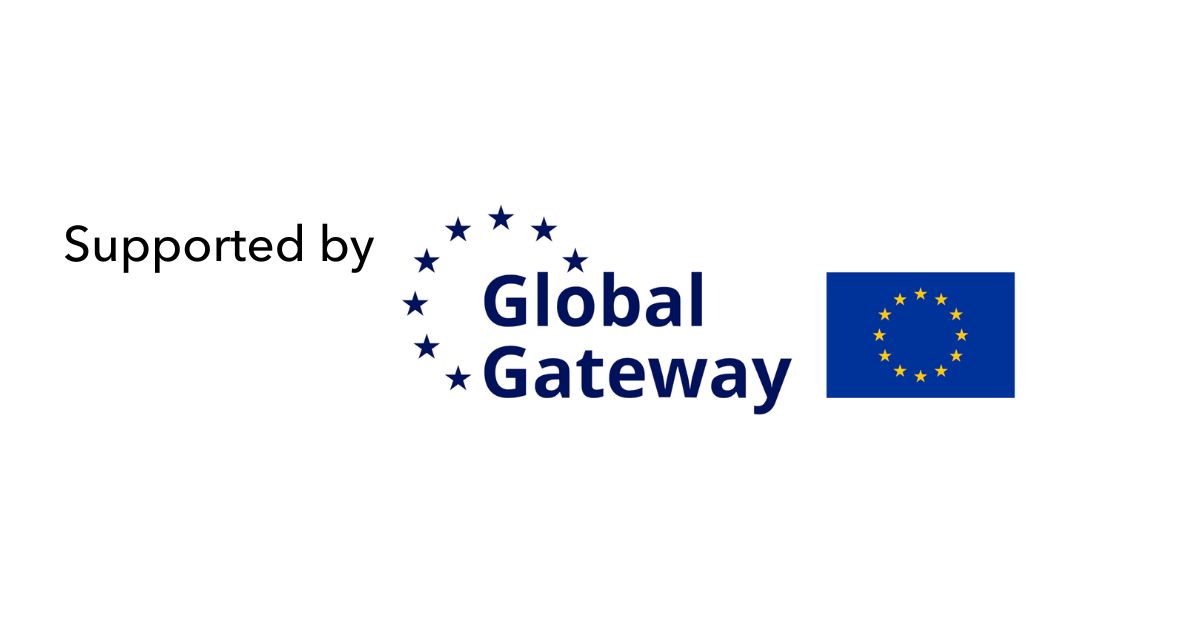Netherlands
- Cristina Mancigotti
- Mindel van de Laar
- Josh Tendai
- Ridho Maulana Dirgantara
- Ghazi Mabrouk
- Angel Draev
Introductory


Description
The summer school is a university-level course of one week, which takes place in the Netherlands, between 1-5 July 2024. The summer school aims at introducing the topics of sustainable digital transformation through different sub-topics, including but not limited to digital emerging technologies, digital farming and e-waste management. The summer school will allow participants to become familiar to the jargon surrounding digital transformation and sustainability issues through lectures and interactive sessions. Moreover, participants will be introduced to the academic literature on the topics of digital emerging technologies, sustainable agriculture and digital farming, e-waste management, AI and sustainability. With the generous support of Global Gateway, participation is provided free of charge for selected applicants, including accommodation (from 30 June to 4 July included, five nights in total), meals, and other organized activities for a comfortable and immersive learning experience. Participants or their organizations will be responsible for covering their own travel expenses to and within Maastricht. Please note that the summer school is planned to finish on 5 July after lunch.
Professionals who are actively engaged in digital transformation and sustainability worldwide. The maximum number of participants is limited to 30 persons.
- Education: We require participants to have a completed BSc or BA (or equivalent) in Social Sciences (Economics, Public Policy) or related discipline (e.g. Engineering, Political Science).
- Language: Fluency in English is required
- Job profile and country: Participants must be working on topic related to digital transformation.
- Government officials and policy makers from developing countries are highly encouraged to apply.
- Employees in other public and private as well as non-governmental entities working in the field of digital development and digital technology may also participate.
- Gender balance and geographic diversity will be observed.
- Applicants must submit a detailed CV, a recommendation letter from the employer or a motivational letter. They must also complete an application questionnaire.
- Selection will be done by the course organizers upon considering the above entry requirements in addition to the analysis of the application questionnaire and the recommendation / motivation letter of each applicant.
Upon completion of this course, participants will be able to:
- Apply the basic jargon necessary to discuss digital transformation issues;
- Describe the role that digital transformation may play in shaping the economy and society;
- Recognize sector-level specificities in the sources of digital transformation, and compare their consequences for practice and policy;
- Integrate digital transformation’s learnings in a current topic or issue from the participants’ workplace.
The Summer Course takes place in Maastricht, the Netherlands, for one week.
The summer course offers the following activities:
- Introduction and goal setting session;
- Daily lecture;
- Daily interactive sessions;
- Peer-learning activities;
- Mandatory and optional reading materials;
- Closing session.
Readings: For each lecture, one-two compulsory readings are identified, complemented with a list of additional readings for the interested reader.
All materials can be accessed through the online ITU Academy platform.
Participants will be required to take part in all the activities of the Summer School. At the end of the Summer School, participants will receive an ITU and UNU-MERIT certificate of completion.
In order to obtain the certificate of participation, participants will be required to follow minimally 80% of the activities. Participants will also be required to submit a poster on their own issue and topic to be presented during the Summer School.
Monday
- Topics covered:
- Welcome Session
- Introduction to the Programme
- Goal setting
- Digital Solution Exercise
- Digital emerging technologies and digital transformation
- Key learning points:
- Understanding the program objectives
- Interactive session to foster engagement
- Exploring the power and implications of digital technologies
- Identifying opportunities and threats in digital transformation
Tuesday
- Topics covered:
- Sustainable agriculture and digital farming
- Discussion of Cases
- Key learning points:
- Different types of digital transformation in agriculture
- Recognizing possibilities and challenges in digital farming
- Exploring solutions for sustainable digital agriculture
Wednesday
- Topics covered:
- AI and sustainability
- The impact of digitalisation technologies on sustainability
- Experience and Aims of the Computational Innovation Lab on Crisis transformation and Sustainable Development
- Key learning points:
- Understanding sustainability challenges in AI technology
- Analyzing the impact of digital technologies on sustainability
- Panel discussion on computational innovation for sustainable development
Thursday
- Topics covered:
- Digital Transformation & E-Waste Management
- Key learning points:
- Understanding the environmental and social impacts of e-waste
- Exploring circular economy strategies for e-waste management
- Evaluating policy initiatives and industry practices
Friday
- Topics covered:
- Digital Solution Exercise presentations
- Evaluation and closing session
- Key learning points:
- Identifying challenges in digital technology adoption
- Discussing solutions for sustainable digital transformation
- Program evaluation and closing remarks











